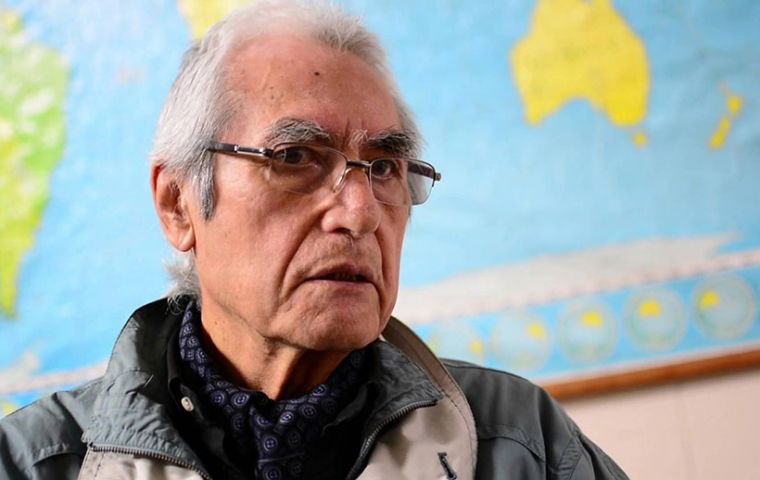MercoPress. South Atlantic News Agency
Bad start for Peruvian president Castillo, two trips in two days
 Hector Bejar nominated as Peruvian foreign minister. An academic with a long love list of support for failed revolutions and armed uprisings
Hector Bejar nominated as Peruvian foreign minister. An academic with a long love list of support for failed revolutions and armed uprisings Another bump in the head for the stubborn Peruvian president Pedro Castillo who took office this week. Not only his nomination for prime minister Guido Bellido has been questioned as a former admirer of a terrorist group that ravaged Peru in the eighties and nineties, but now repeats with his foreign minister, Hector Béjar, a former guerrilla member, with academic background who in his books praises armed revolution, “with no forgiveness”.
Béjar openly supports the Socialist experiment measures in Venezuela as a “moral obligation”, and anticipated that a Castillo administration would be less progressive when it comes to third and fourth generation rights, but “much stronger in economic and social rights”.
Béjar currently is 86 years old, but when he was 27 went to Cuba to support the Castro revolution and meet Che Guevara, and on his return to Peru he joined a budding guerrilla group under the name of Revolutionary Leftwing Movement, MIR. He later organized the National Liberation Army, ELN, and travelled often to Cuba and Bolivia. Finally he was imprisoned and in 1973 benefitted from an amnesty granted by then military dictator Velasco Alvarado, and started to work for him, trying to organize social support of the left wing president.
Later in a trip to Ayacucho he met with a young philosophy professor Abimael Guzmán who would become leader and organizer of the Maoist Shining Path terrorist group that in two decades of cruel and horrendous fighting left close to 100,000 Peruvians dead and millions of displaced and disappeared peasants. Allegedly Guzmán told Béjar the time was not yet ripe for an overall peasants' insurrection.
In his quieter years Béjar continues linked to the academic world, has represented Latin America at the World Global Action Committee against Poverty, was a member of the Global Call Foundation and head of the Peruvian branch of the NGO Social Watch and Citizen's Control plus editor of the magazine Socialism and Participation.
But however admirable or regrettable Bejar's CV, the fact it that president Castillo still must have his cabinet approved by Congress, and the Peruvian electorate is divided in two halves, hopefully reconcilable, and distant from idealistic provocations from the sixties and seventies.




Top Comments
Disclaimer & comment rulesCommenting for this story is now closed.
If you have a Facebook account, become a fan and comment on our Facebook Page!